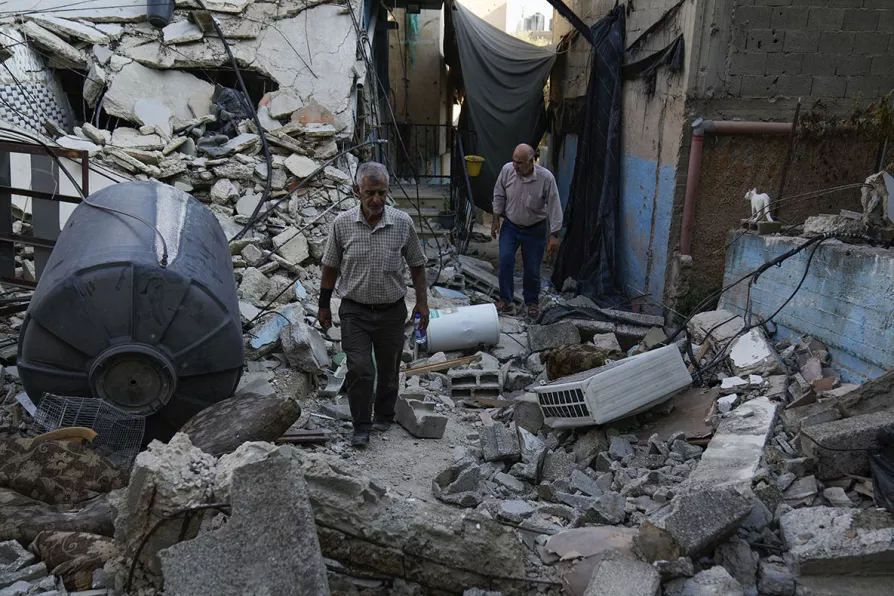Israeli forces withdraw after deadly attack on three refugee camps in the occupied West Bank

 A Palestinian man inspects the damage to a building after Israeli forces raided the West Bank city of Jenin, September 6, 2024
A Palestinian man inspects the damage to a building after Israeli forces raided the West Bank city of Jenin, September 6, 2024
ISRAELI forces appear to have withdrawn from three refugee camps in the occupied West Bank.
The apparent withdrawal follows a brutal operation lasting more than a week that left dozens of Palestinians dead and a trail of destruction.
Overnight, Israeli armoured personnel carriers were seen leaving the Jenin refugee camp from a checkpoint set up on one of the main roads, and reporters inside the camp saw no evidence of any remaining troops inside as dawn broke early this morning.
Similar stories

Meanwhile, Israel kills 35 in ‘significant and broad military operation’ in West Bank













